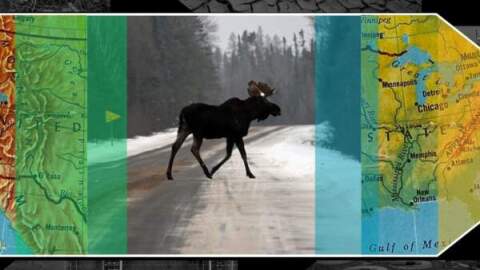-
The number of moose in Minnesota is about half what it was just 20 years ago.
-
Many experts had thought sharks didn't exist in the frigid waters of Antarctica.
-
Skiers would typically use waxes with PFAS to lubricate their skis to go downhill faster.
-
Starting Thursday, the Environmental Protection Agency will no longer regulate pollutants from fossil fuels, such as methane and carbon dioxide, under the Clean Air Act.
-
A collapsed sewer line, about 8 miles from the White House, pumped 368 Olympic-sized swimming pools worth of wastewater into the Potomac. Repairs could take longer than previously expected.
-
Italy's Winter Olympics promised sustainability. But in Cortina, environmentalists warn the Games could scar these mountains for decades.
-
Chile is freezing its future to protect its plants.
-
We join a group of mudlarkers to see what's hiding by a creek in Philadelphia, as contributors ask what mudlarking, scavenging the banks of rivers or creeks for treasures, can uncover.
-
The announcement comes just days after NPR revealed the administration had secretly rewritten safety and environmental standards.
-
Strong winds can make it feel a lot colder than the thermometer suggests. Protect yourself by covering exposed skin and sheltering inside.
-
The wind chill in Easton, Pennsylvania, was below zero on Wednesday.
-
The winter storm left a record number of people in Nashville without power.










